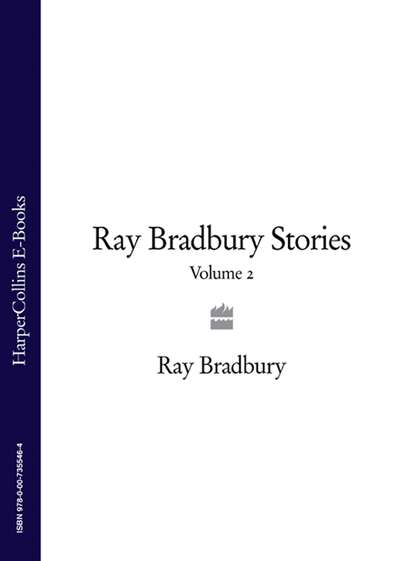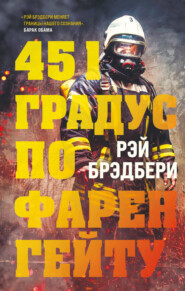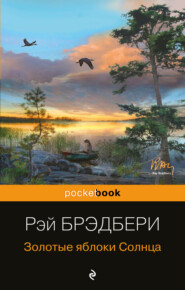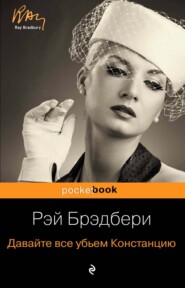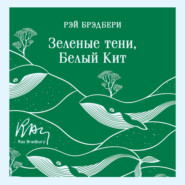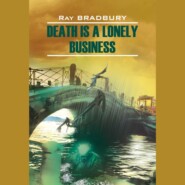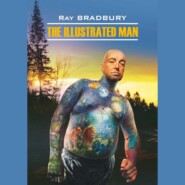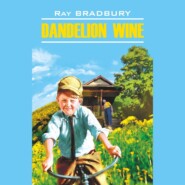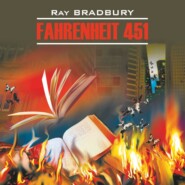По всем вопросам обращайтесь на: info@litportal.ru
(©) 2003-2024.
✖
Ray Bradbury Stories Volume 2
Настройки чтения
Размер шрифта
Высота строк
Поля
It was a brief tussle then, a kind of disengagement from one woman and an engagement with the other. The wife lost my arm and the woman found my cash. As if she were on roller skates, she whisked around the corner, sobbing happily.
‘Lord!’ In awe, I watched her go. ‘She’s studied Stanislavsky. In one book he says that squinting one eye and twitching one lip to the side will disguise you. I wonder if she has nerve enough to be at the hotel when we go back?’
‘I wonder,’ said my wife, ‘when my husband will stop admiring and start criticizing such Abbey Theatre acting as that.’
‘But what if it were true? Everything she said? And she’s lived with it so long she can’t cry anymore, and so has to play-act in order to survive? What if?’
‘It can’t be true,’ said my wife slowly. ‘I just won’t believe it.’
But that single bell was still tolling somewhere in the chimney-smoking dark.
‘Now,’ said my wife, ‘here’s where we turn for O’Connell Bridge, isn’t it?’
‘It is.’
That corner was probably empty in the falling rain for a long time after we were gone.
There stood the graystone bridge bearing the great O’Connell’s name, and there the River Liffey rolling cold gray waters under, and even from a block off I heard faint singing. My mind spun in a great leap back to December.
‘Christmas,’ I murmured, ‘is the best time of all in Dublin.’
For beggars, I meant, but left it unsaid.
For in the week before Christmas the Dublin streets teem with raven flocks of children herded by schoolmasters or nuns. They cluster in doorways, peer from theater lobbies, jostle in alleys, ‘God Rest You Merry, Gentlemen’ on their lips, ‘It Came Upon a Midnight Clear’ in their eyes, tambourines in hand, snowflakes shaping a collar of grace about their tender necks. It is singing everywhere and anywhere in Dublin on such nights, and there was no night my wife and I did not walk down along Grafton Street to hear ‘Away in a Manger’ being sung to the queue outside the cinema or ‘Deck the Halls’ in front of the Four Provinces pub. In all, we counted in Christ’s season one night half a hundred bands of convent girls or public-school boys lacing the cold air and weaving great treadles of song up, down, over and across from end to end of Dublin. Like walking in snowfall, you could not walk among them and not be touched. The sweet beggars, I called them, who gave in turn for what you gave as you went your way.
Given such example, even the most dilapidated beggars of Dublin washed their hands, mended their torn smiles, borrowed banjos or bought a fiddle and killed a cat. They even gathered for four-part harmonies. How could they stay silent when half the world was singing and the other half, idled on the tuneful river, was paying dearly, gladly, for just another chorus?
So Christmas was best for all; the beggars worked – off key, it’s true, but there they were, one time in the year, busy.
But Christmas was over, the licorice-suited children back in their aviaries, and the beggars of the town, shut and glad for the silence, returned to their workless ways. All save the beggars on O’Connell Bridge, who, all through the year, most of them, tried to give as good as they got.
‘They have their self-respect,’ I said, walking my wife. ‘I’m glad this first man here strums a guitar, the next one a fiddle. And there, now, by God, in the very center of the bridge!’
‘The man we’re looking for?’
‘That’s him. Squeezing the concertina. It’s all right to look. Or I think it is.’
‘What do you mean, you think it is? He’s blind, isn’t he?’
These raw words shocked me, as if my wife had said something indecent.
The rain fell gently, softly upon graystoned Dublin, graystoned riverbank, gray lava-flowing river.
‘That’s the trouble,’ I said at last. ‘I don’t know.’
And we both, in passing, looked at the man standing there in the very middle of O’Connell Bridge.
He was a man of no great height, a bandy statue swiped from some country garden perhaps, and his clothes, like the clothes of most in Ireland, too often laundered by the weather, and his hair too often grayed by the smoking air, and his cheeks sooted with beard, and a nest or two of witless hair in each cupped ear, and the blushing cheeks of a man who has stood too long in the cold and drunk too much in the pub so as to stand too long in the cold again. Dark glasses covered his eyes, and there was no telling what lay behind. I had begun to wonder, weeks back, if his sight prowled me along, damning my guilty speed, or if only his ears caught the passing of a harried conscience. There was that awful fear I might seize, in passing, the glasses from his nose. But I feared much more the abyss I might find, into which my senses, in one terrible roar, might tumble. Best not to know if civet’s orb or interstellar space gaped behind the smoked panes.
But, even more, there was a special reason why I could not let the man be.
In the rain and wind and snow, for two solid months, I had seen him standing here with no cap or hat on his head.
He was the only man in all of Dublin I saw in the downpours and drizzles who stood by the hour alone with the drench mizzling his ears, threading his ash-red hair, plastering it over his skull, rivuleting his eyebrows, and purling over the coal-black insect lenses of the glasses on his rain-pearled nose.
Down through the greaves of his cheeks, the lines about his mouth, and off his chin, like a storm on a gargoyle’s flint, the weather ran. His sharp chin shot the guzzle in a steady fauceting off in the air, down his tweed scarf and locomotive-colored coat.
‘Why doesn’t he wear a hat?’ I said suddenly.
‘Why,’ said my wife, ‘maybe he hasn’t got one.’
‘He must have one,’ I said.
‘Keep your voice down.’
‘He’s got to have one,’ I said, quieter.
‘Maybe he can’t afford one.’
‘Nobody’s that poor, even in Dublin. Everyone has a cap at least!’
‘Well, maybe he has bills to pay, someone sick.’
‘But to stand out for weeks, months, in the rain, and not so much as flinch or turn his head, ignore the rain, it’s beyond understanding.’ I shook my head. ‘I can only think it’s a trick. That must be it. Like the others, this is his way of getting sympathy, of making you cold and miserable as himself as you go by, so you’ll give him more.’
‘I bet you’re sorry you said that already,’ said my wife.
‘I am. I am.’ For even under my cap the rain was running off my nose. ‘Sweet God in heaven, what’s the answer?’
‘Why don’t you ask him?’
‘No.’ I was even more afraid of that.
Then the last thing happened, the thing that went with his standing bareheaded in the cold rain.
For a moment, while we had been talking at some distance, he had been silent. Now, as if the weather had freshened him to life, he gave his concertina a great mash. From the folding, unfolding snake box he squeezed a series of asthmatic notes which were no preparation for what followed.
He opened his mouth. He sang.
The sweet clear baritone voice which rang over O’Connell Bridge, steady and sure, was beautifully shaped and controlled, not a quiver, not a flaw, anywhere in it. The man just opened his mouth, which meant that all kinds of secret doors in his body gave way. He did not sing so much as let his soul free.
‘Oh,’ said my wife, ‘how lovely.’
‘Lovely.’ I nodded.
We listened while he sang the full irony of Dublin’s Fair City where it rains twelve inches a month the winter through, followed by the white-wine clarity of Kathleen Mavourneen, Macushlah, and all the other tired lads, lasses, lakes, hills, past glories, present miseries, but all somehow revived and moving about young and freshly painted in the light spring, suddenly-not-winter rain. If he breathed at all, it must have been through his ears, so smooth the line, so steady the putting forth of word following round belled word.
‘Why,’ said my wife, ‘he could be on the stage.’





